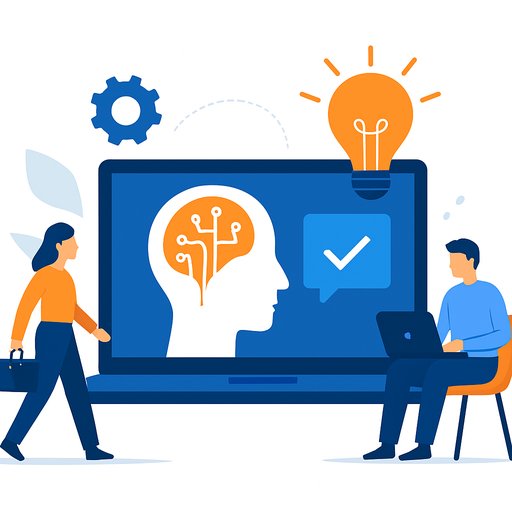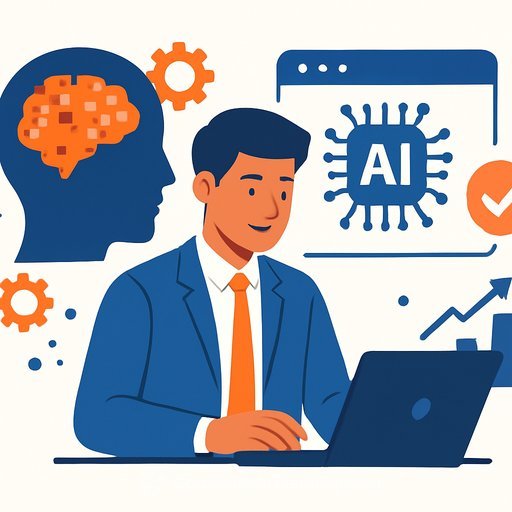Apply AI: accelerating adoption to keep EU industry competitive
AI is advancing fast in 2025. To keep EU industry competitive, adoption must speed up across sectors-especially SMEs-while public services modernise and European frontier models mature.
The Apply AI Strategy answers this need. Consultation feedback points to clear priorities: boost European innovation and competitiveness with targeted investment in infrastructure, talent, funding, and collaboration.
Skills: does training meet labour market demand?
Job demand clusters around a few roles: AI/ML engineers and developers, data analysts, and data engineers. These sit mainly in two occupation groups: Software and Applications Developers and Analysts, and Database and Network Professionals.
Current education and training focus on ML, generic AI, robotics and automation, and AI ethics. Generative AI gets less attention, signaling a need to scale teaching and hands-on practice in this area.
Another gap: most AI training sits inside ICT. We need more AI education in Social Sciences, Administration and Law, and Engineering, Manufacturing and Construction. A more multidisciplinary talent pipeline will serve research, education, and industry better.
Public sector: a flagship for AI uptake
AI adoption in government is already happening and largely beneficial. Success depends on leadership support, an innovative culture, and in-house expertise-especially for evaluating use cases and operating AI responsibly, including Generative AI.
Use case repositories across EU administrations are growing and can guide implementation, benchmarking, and risk management. This collective evidence base will help scale what works and retire what does not.
Business support: EDIHs become Experience Centres for AI
The strategy strengthens European Digital Innovation Hubs (EDIHs) so SMEs, startups, and public sector organisations get a direct path to testing, training, and applying AI. As Experience Centres for AI, EDIHs will connect companies to the EU innovation ecosystem.
Findings show EDIHs already help clients solve practical challenges and offer training. The next step is clearer guidance on regulation and ethics, plus expanded AI workshops and legal advisory support.
What educators, researchers, and public administrators can do now
- Close the skills gap: align curricula with high-demand roles (AI/ML engineering, data engineering/analysis). Add project-based Generative AI modules with model evaluation and prompt strategies.
- Go beyond ICT: embed AI literacy and applied methods into law, social sciences, engineering, manufacturing, and construction. Co-teach with domain experts.
- Build short-form learning: micro-credentials, executive programs, and stackable certificates for fast upskilling of mid-career professionals and public servants.
- Strengthen practice: create shared datasets, sandboxes, and model labs. Use cloud credits and open tooling to lower barriers for experiments and capstone projects.
- Partner with EDIHs and industry: co-develop real use cases, internships, and faculty-practitioner residencies. Measure outcomes and iterate each semester.
- Prepare public teams: secure leadership sponsorship, set up internal AI guilds, and retain critical in-house expertise for procurement, evaluation, and deployment.
- Operationalise trust: build ethics-by-design workflows, model cards, data governance, and risk registers aligned with the European AI Act.
Useful resources
Fast-track your team's AI skills
Need practical training for AI/ML engineers, data roles, or GenAI practitioners? Explore curated learning paths and fresh courses mapped to real job skills.
Bottom line
EU competitiveness depends on faster AI adoption, targeted upskilling, and stronger public-private execution. Focus on GenAI capability, cross-disciplinary training, and trustworthy deployment-then scale what delivers measurable value.
Your membership also unlocks:









